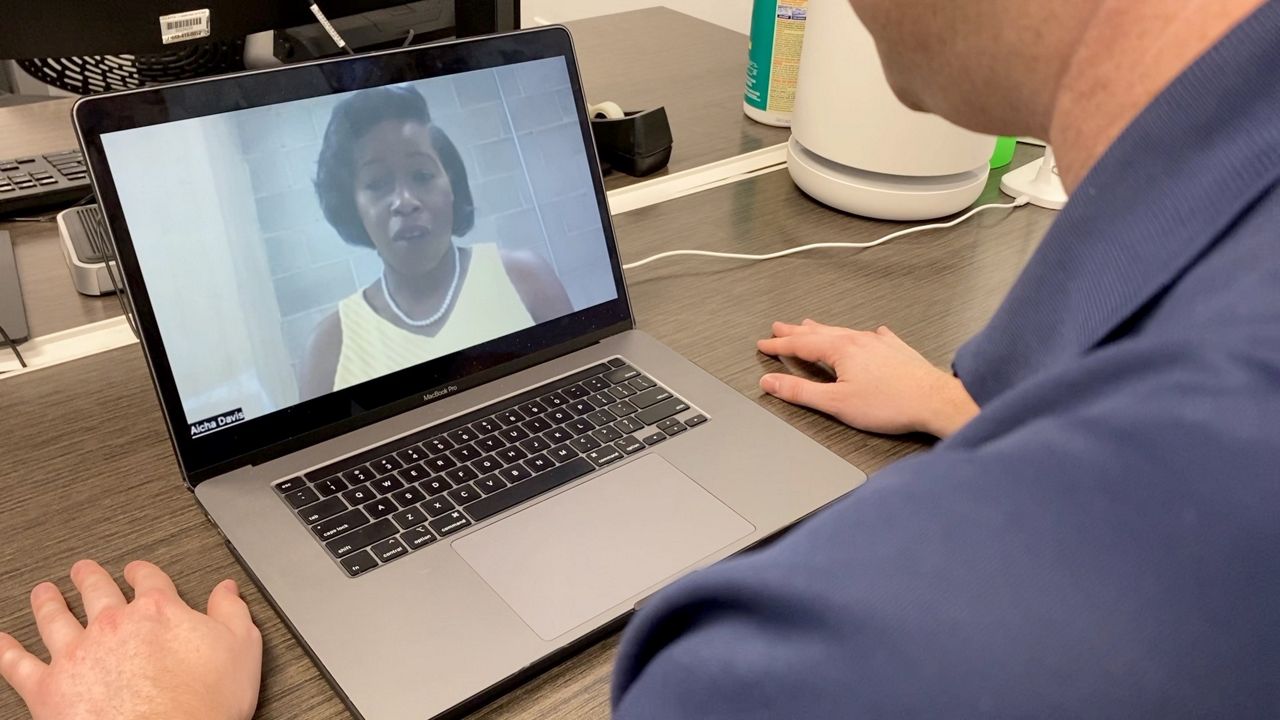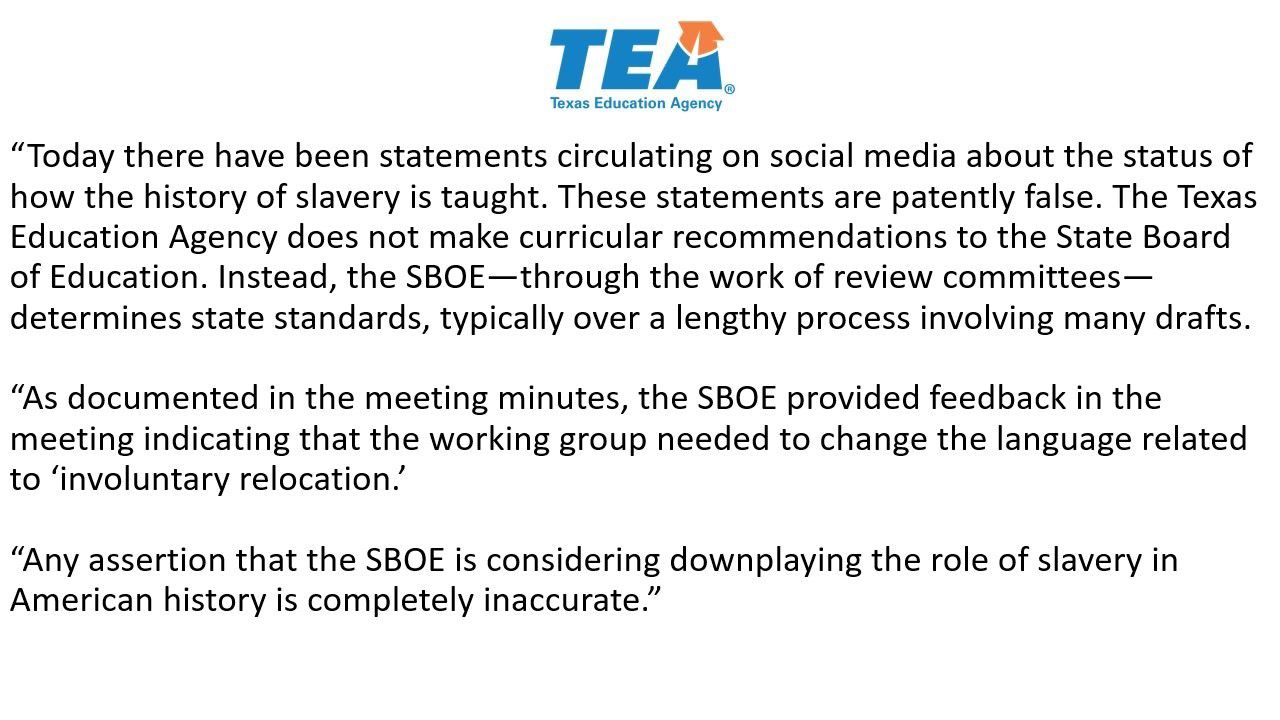AUSTIN, Texas — To fully understand America’s complicated history, Faith Weaver believes schools across the state need to teach every aspect of it.
“We hear that with slavery, that happened a long time ago, but in the scheme of things it didn’t happen that long ago,” Weaver said. “For almost as long as we’ve been freed we have had enslaved people."
As education coordinator at the Carver Museum, Cultural and Genealogy Center, the historian won’t shy away from the truth, and believes the younger generations shouldn’t either.
“That’s a part of our history and that’s not going to go away because you change the wording of what it was,” Weaver said. “It still is, so we have to acknowledge that and try to be better.”
The wording being discussed came out of a Texas Education Agency (TEA) work group proposal last month.
In a meeting to discuss changes to the social studies curriculum, the use of “involuntary relocation” as opposed to “slavery” for K-12 students was unanimously dismissed by the Texas School Board of Education (SBOE).

Texas School board member, Aicha Davis, representing Dallas-Fort Worth, says last year’s Senate Bill 3, which restricts how racism is taught in classrooms, has played a factor in the types of changes being proposed.
“That’s played a higher role than actually delivering truthfulness and that is a problem,” Davis said.
The TEA released a statement on the matter, however, our request for an interview with members of the work group went unanswered.

“I haven’t had one person agree the language was ok,” Davis said. “So in some ways that has brought people together from both sides of the aisle.”
The school board says they’ll fight to keep sharing accurate accounts of Black history in social studies classes across the state.
“I think we as adults need to realize that those students are mature enough,” Davis said.
It’s the kind of message Weaver will also continue to emphasize in hopes society will grow from the past, instead of repeating it.
“They were enslaved, they were in bondage, they were chained, they died,” Weaver said. “You can’t take away their sacrifice or that so many of our ancestors experienced that.”



